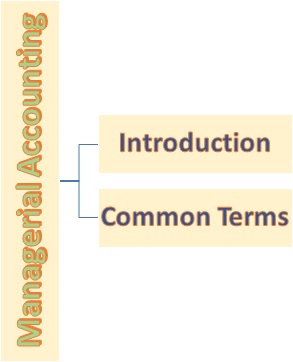Common Terms in Managerial Accounting
In managerial accounting, some terminologies are used which calls for students, learners and managers to be conversant with those common terms.The following are some of the common terms you may find while studying managerial accounting:
Product costs - Manufacturing costs which are capitalized and only realized when the goods are sold.
Period costs - Costs or expenses incurred during a given period of production and are expensed as incurred.
Prime costs - Costs related to direct labor and direct materials.
Conversion costs - Costs consisting of direct labor and overhead that are used to convert raw materials into finished goods.
Overhead costs - Costs used in the production process that do not belong to direct labor and direct materials categories.
Manufacturing costs - Costs related to production of a product (direct labor, direct materials and overhead costs).
Fixed costs - Costs that stay the same despite the change in quantity of production.
Variable costs - Costs that change in proportion to the change in quantity of production.
Opportunity costs - Costs of an alternative choice that was forfeited in a decision.
Sunk costs - Past costs that have been incurred and cannot be recovered.
Costing - A systematic allocation of cost to various processes, jobs or units in the production process.
Job Order costing - Costing method that allocates costs to individual jobs or orders.
Activity based costing - Method of allocating manufacturing overhead costs in the production process.
Process costing - Costing method that allocates costs using various stages or departments in the production process.
The list of terminologies goes on and on, and some of them may not be used in this site. However, these terms have been provided to offer the basic understanding of some of the common terms in managerial accounting.

